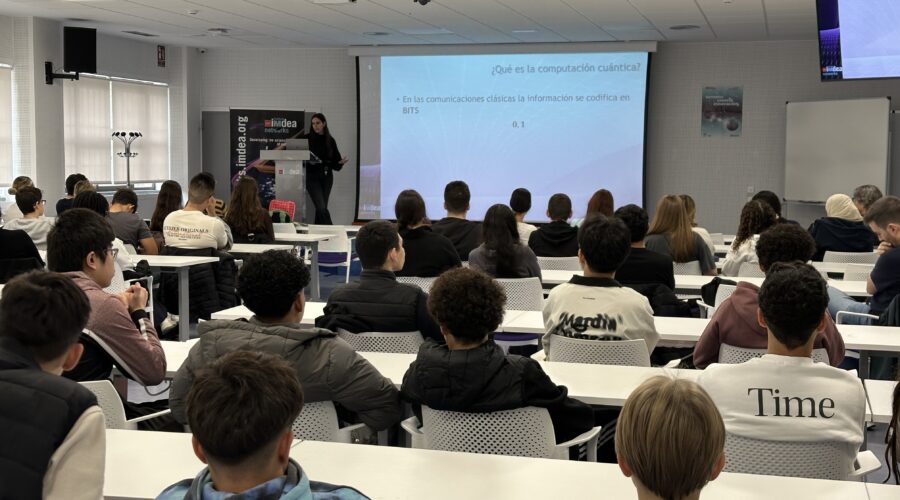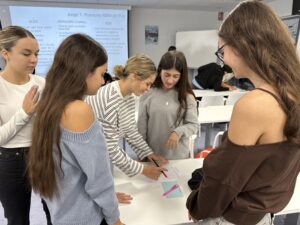IMDEA Networks

IMDEA Networks brings quantum computing closer to students during Science and Innovation week
50 students took on the roles of Alice, Bob, and Eve to explore the BB84 quantum cryptography protocol through an interactive game
05 November 2025

Once again, IMDEA Networks opened its doors to students for the Science and Innovation Week, organized by the Foundation for Knowledge madri+d. This year, 50 students from 4th year of ESO and 1st year of Bachillerato from the Colegio Santa María de los Apóstoles (Madrid) and the IES Pedro Duque (Leganés) learned about secure quantum computing with Ángela Díaz, a PhD student at the institute.
The session began with an introductory talk in which Ángela explained key concepts such as classical bits, qubits, and the phenomenon of quantum superposition, illustrated with the famous Schrödinger’s cat thought experiment. Students also learned about the advantages and challenges of quantum computing and discovered how the BB84 protocol allows keys to be exchanged completely securely thanks to the laws of physics.
After the theoretical part, it was time to put the knowledge into practice. In the first game, participants were divided into groups to take on the roles of Alice, Bob, and the messenger, learning the basic mechanics of quantum information exchange. Using a system of numbered cards, markers —including invisible ink— and coding tables, they experimented with how keys are securely generated and shared through different “channels” of transmission.

Once they had understood the dynamics, the second game introduced a new character: Eve, the spy. Her presence allowed students to experience one of the fundamental principles of quantum physics firsthand: when a qubit is measured, its state is destroyed, which makes it possible to detect any attempt to intercept the communication. The final comparison of Alice and Bob’s keys showed how Eve’s intervention breaks the match, highlighting the effectiveness of quantum cryptography in ensuring information security.
The activity also benefited from the collaboration of Romina Rodríguez, a PhD student, and Iván Melijosa, Research Engineer at IMDEA Networks, who supported the workshop development and group coordination.
With this initiative, IMDEA Networks reinforces its commitment to science outreach and the promotion of STEM careers, bringing research in quantum communication and technologies closer to young people and showing how science can be tangible, fun, and inspiring.


Recent Comments